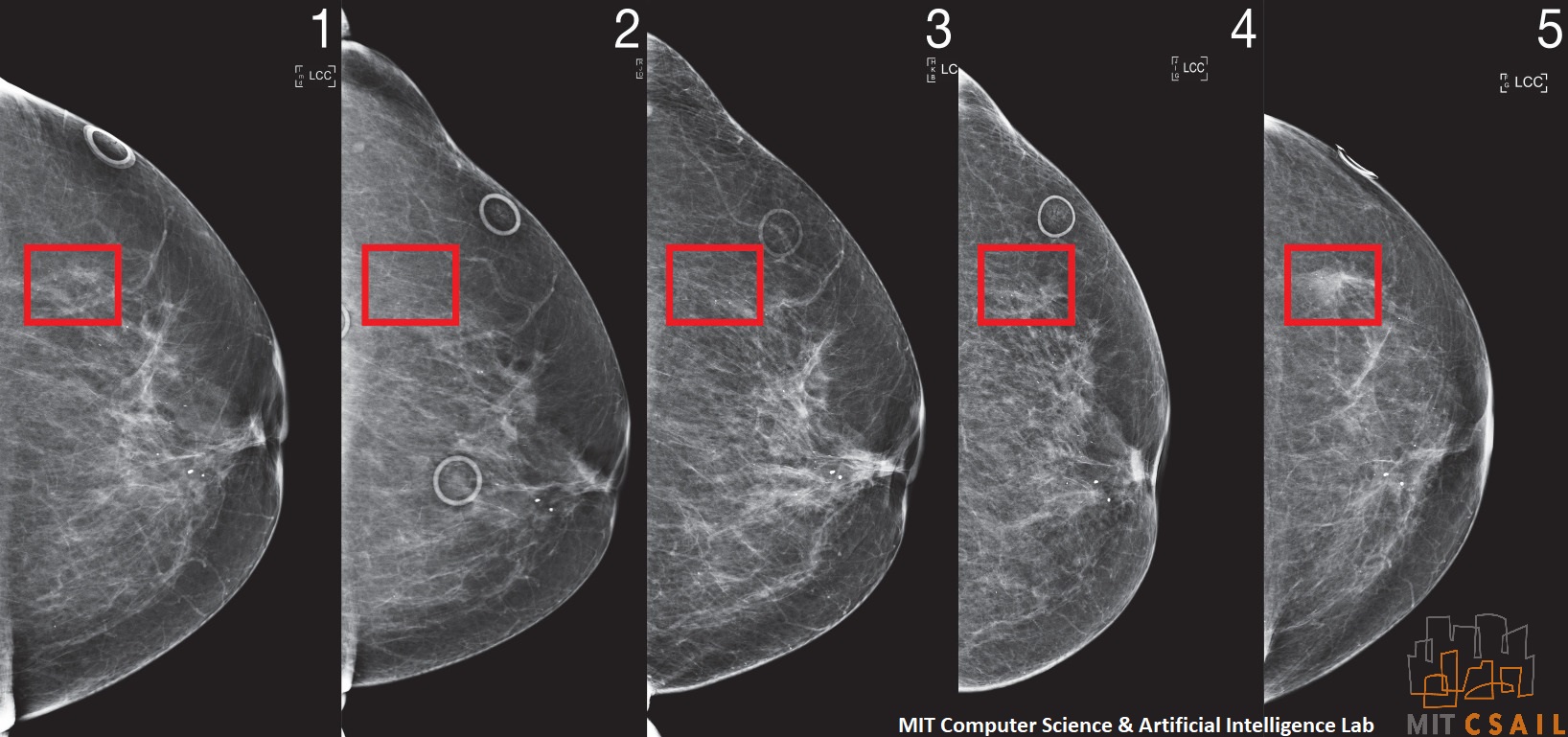Predicting the development of tumor cells is an – in several respects exemplary – application of Artificial intelligence. A few days ago, a research group at the Massachusetts Institute of Technology (MIT) in Boston, USA, reported their recent success in early breast cancer detection using AI.

Creatures, seen as infinitely complicated interacting cell clusters, only do exist over long time, if the individual cells regularly renew themselves. For this, cell division is necessary: the genetic DNA information is copied – with a certain failure rate. The longer we live, the more cell divisions have undergone and thus the greater the probability of dysfunctional cells. Our tumor risk increases with our age.
However, there are more factors, e.g., hormonal balance or environmental influences such as the intake of toxic substances and the – in general natural – radiation. How all this is connected is largely unknown. A heavy smoker like former German Chancellor Helmut Schmidt could live to be almost 97 years old, whereas many others die prematurely of lung cancer.
Conclusions made by physicians are often meant statistically. Actually, medics do not know why a certain percentage of individuals do not react to caffein, why others suffer from a drugs side effects, and why some get cancer at an early age. Causal connections are rarely known in medicine.
No causality, only statistics? An ideal sphere of activity for AI! Especially since imaging techniques such as X-ray, Ultrasound, Computer Tomography (CT), Magnetic Resonance Imaging (MRI), etc. are becoming more and more prevalent in medicine – and image processing makes up a large part of AI. When detecting tumors on images, it is important to make reliable assessments as early as possible in order to keep the number of psychologically stressful false-positive prognoses as low as possible.
Adam Yala, staff member of the Computer Science & Artificial Intelligence Lab at MIT, used, along with an international team in Sweden and Taiwan, more than 260,000 mammograms to instruct an AI to forecast breast cancer. The images, taken from different angles, contain information about tissue density. They are processed by an AI algorithm that includes classical factors like age and hormone balance. This approach comes up with over 40 % correct predictions within a 5-year projection period. This is significantly better than previous methods with success rates of 20-30 %. [Adam Yala et al: Toward robust mammography-based models for breast cancer risk, Science Translational Medicine, 27 Jan 2021].
AI can make the world a better place. Try it too – on an AI-enabled PC from Omtec!
